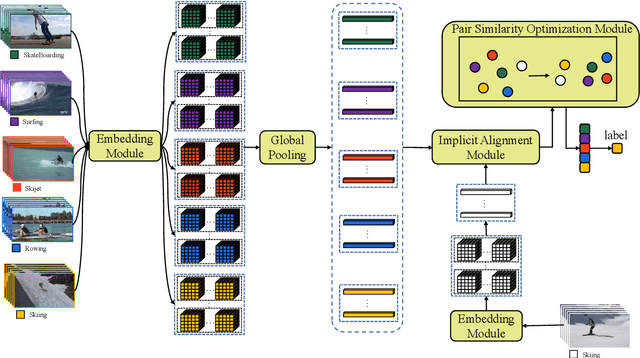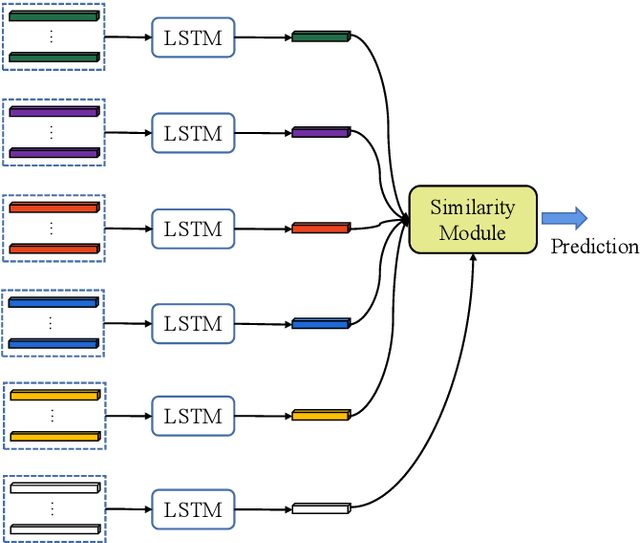Few-shot Action Recognition with Implicit Temporal Alignment and Pair Similarity Optimization
Paper and Code
Oct 13, 2020



Few-shot learning aims to recognize instances from novel classes with few labeled samples, which has great value in research and application. Although there has been a lot of work in this area recently, most of the existing work is based on image classification tasks. Video-based few-shot action recognition has not been explored well and remains challenging: 1) the differences of implementation details among different papers make a fair comparison difficult; 2) the wide variations and misalignment of temporal sequences make the video-level similarity comparison difficult; 3) the scarcity of labeled data makes the optimization difficult. To solve these problems, this paper presents 1) a specific setting to evaluate the performance of few-shot action recognition algorithms; 2) an implicit sequence-alignment algorithm for better video-level similarity comparison; 3) an advanced loss for few-shot learning to optimize pair similarity with limited data. Specifically, we propose a novel few-shot action recognition framework that uses long short-term memory following 3D convolutional layers for sequence modeling and alignment. Circle loss is introduced to maximize the within-class similarity and minimize the between-class similarity flexibly towards a more definite convergence target. Instead of using random or ambiguous experimental settings, we set a concrete criterion analogous to the standard image-based few-shot learning setting for few-shot action recognition evaluation. Extensive experiments on two datasets demonstrate the effectiveness of our proposed method.
 Add to Chrome
Add to Chrome Add to Firefox
Add to Firefox Add to Edge
Add to Edge